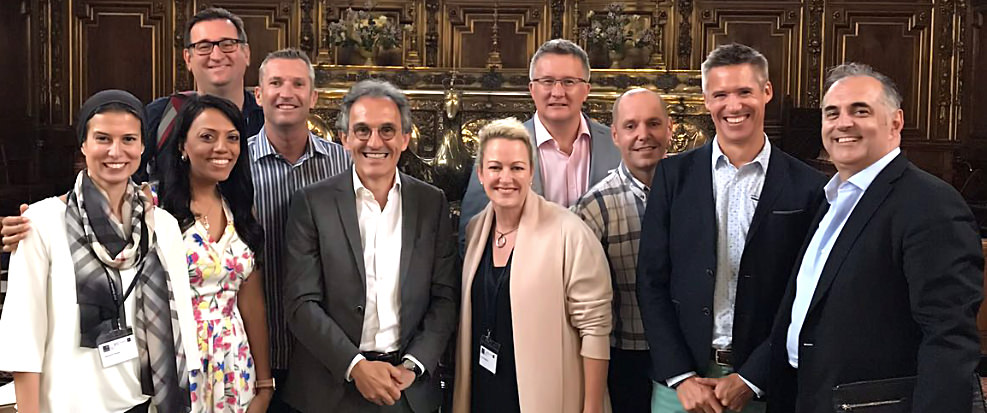
Executive Education Course at Saïd Business School
Published June 2018
Multiple surveys highlight the harsh reality that business leaders are close to being the least trusted professionals on earth (cf. Edelman’s Trust Barometre or Ipsos MORI). There is no doubt that business education institutions are part of the problem, especially those that teach leadership to executives. For this reason, we have prioritised partnering with places that are willing to join us in challenging the status quo, such as Oxford University’s Saïd Business School and the School of Management and Innovation at Sciences Po, Paris.
A group of 21 business leaders gathered for a week in Oxford to challenge their leadership assumptions in light of the management innovation we call the Economics of Mutuality. In this first-of-a-kind event, business practitioners were exposed to personal development workouts led by experts in the humanities, while immersing themselves with help from the Mars Catalyst team in applying the Economics of Mutuality co-creation toolbox to their functional work.
The main questions explored in intensive ‘hands on’ interactive sessions were: Why is this the right moment to challenge my leadership assumptions? What’s my job as a business leader if I am to seed mutuality at the heart of performance to make it more purpose-driven? How can I build and apply better business models in my role that are true to the real purpose of business? What’s the role I must play to spread this movement in the business community I can access?
In this inaugural event, participants were all from Mars, Incorporated and represented 14 countries from around the globe (across mature, fast-developing and less developed markets), different functions and business categories. This was a pilot for what will become an open programme within executive education curriculums, hopefully at the University of Oxford and elsewhere.
Mutuality is at the heart of the Economics of Mutuality programme’s content – and also its preparation. Therefore, we’re particularly grateful to our friends and partners at Oxford’s Saïd Business School and at Mars University, whose collaboration made it such a unique and powerful experience – Colin Mayer, Andrew White, Tracey Camilleri, Samantha Rockey, Jane Craig, Adam Henderson, Greg Morris and Charlotte Sivier.
We’re now planning for the next edition of our Economics of Mutuality Executive Education Programme, building on the lessons of this pilot.
To learn more about the Economics of Mutuality and related executive education opportunities, please visit our Business Education page or get in touch.
Article written by Cedric Bachellerie, on behalf of the Executive Education Programme team – Alastair Colin-Jones, Jay Jakub, Lynda Chen.
Other Articles
Asia Economics of Mutuality Forum 24-25 April 2024
The first Economics of Mutuality forum to be held in Asia, this event will explore how the Economics of Mutuality model can empower cross-sector actors to address the challenges presented by ageing demographics in Asia, such as strained pension and healthcare systems and a shrinking workforce.
Oxford Virtual Executive Education Program 2 May – 20 June 2024
Driving Impact Through Mutual Value Creation, an 8-week online course brought to you by Oxford University’s Saïd Business School and the Economics of Mutuality team, will equip you to walk the talk of Stakeholder Capitalism.
Nordic Economics of Mutuality Forum October 15-16
The first Economics of Mutuality forum to be held in Scandinavia, this event taking place October 15-16, 2024 will be hosted by Brandinnova, the Center for Brand Research at the Norwegian School of Economics (NHH), Jæren Sparebank, and the Economics of Mutuality Foundation.
How Witnessing an Economy of Greed Led Me to Pursue an Economy of Good
Tony Soh is CEO of the National Volunteer & Philanthropy Centre (NVPC) in Singapore. In this interview, he tells us how his experience of the global financial crisis led him to search for better ways of doing business. A graduate of the Oxford Economics of Mutuality Virtual Executive Education Program, he is working to build a movement around corporate purpose in his city



